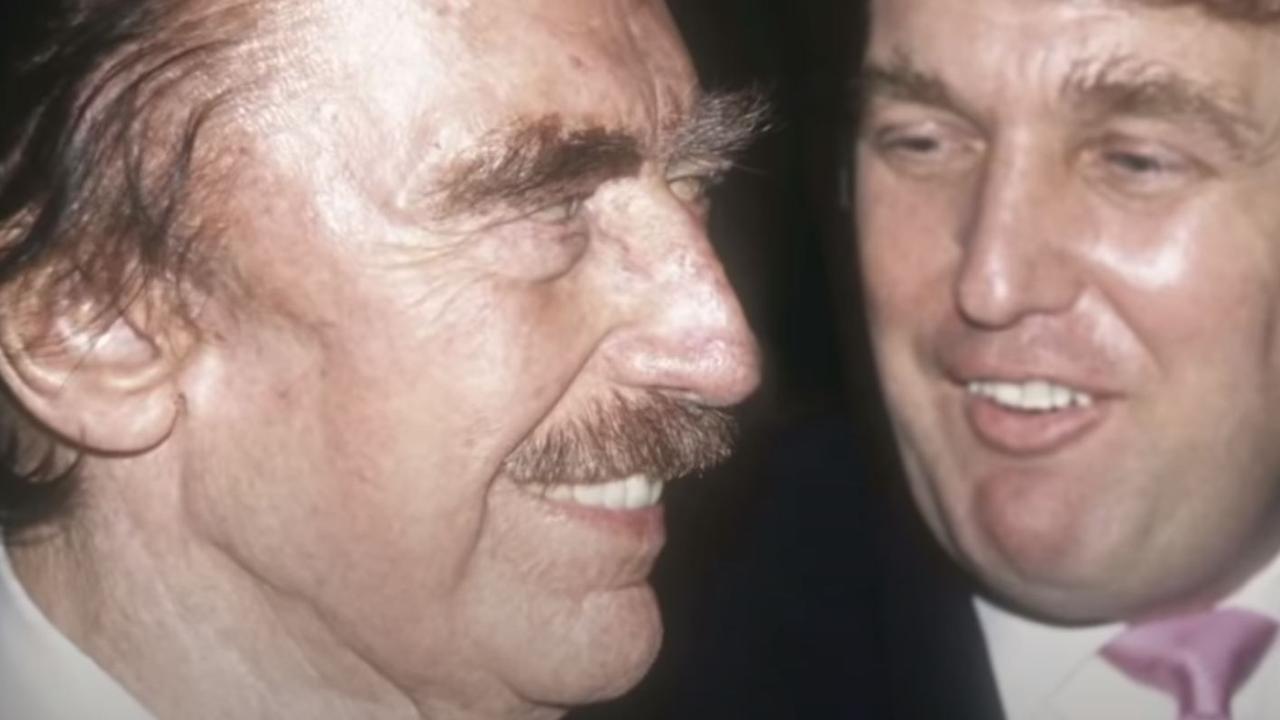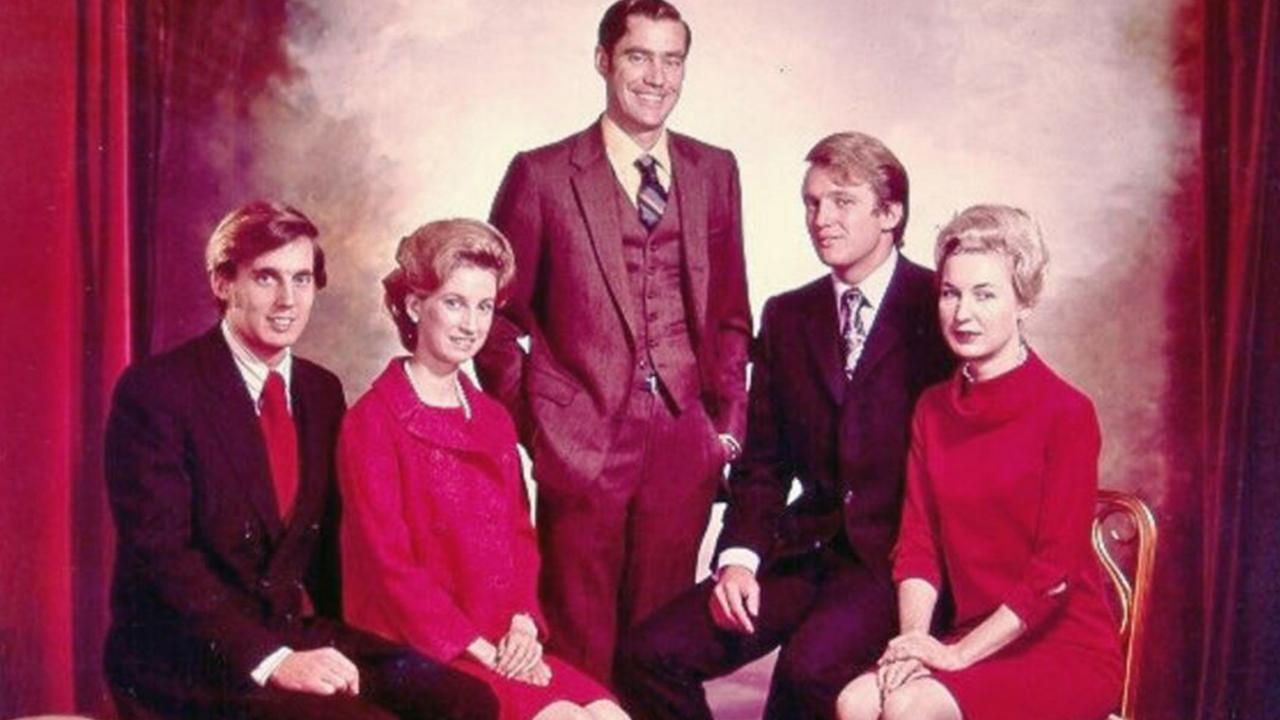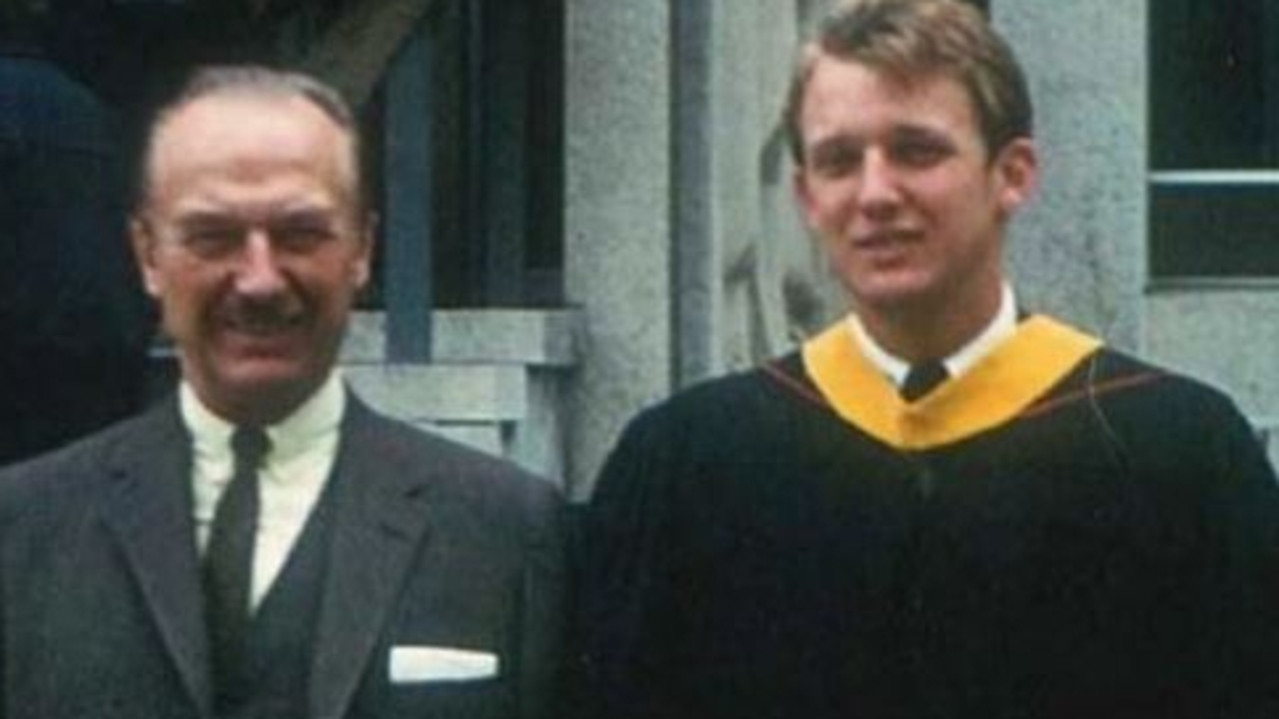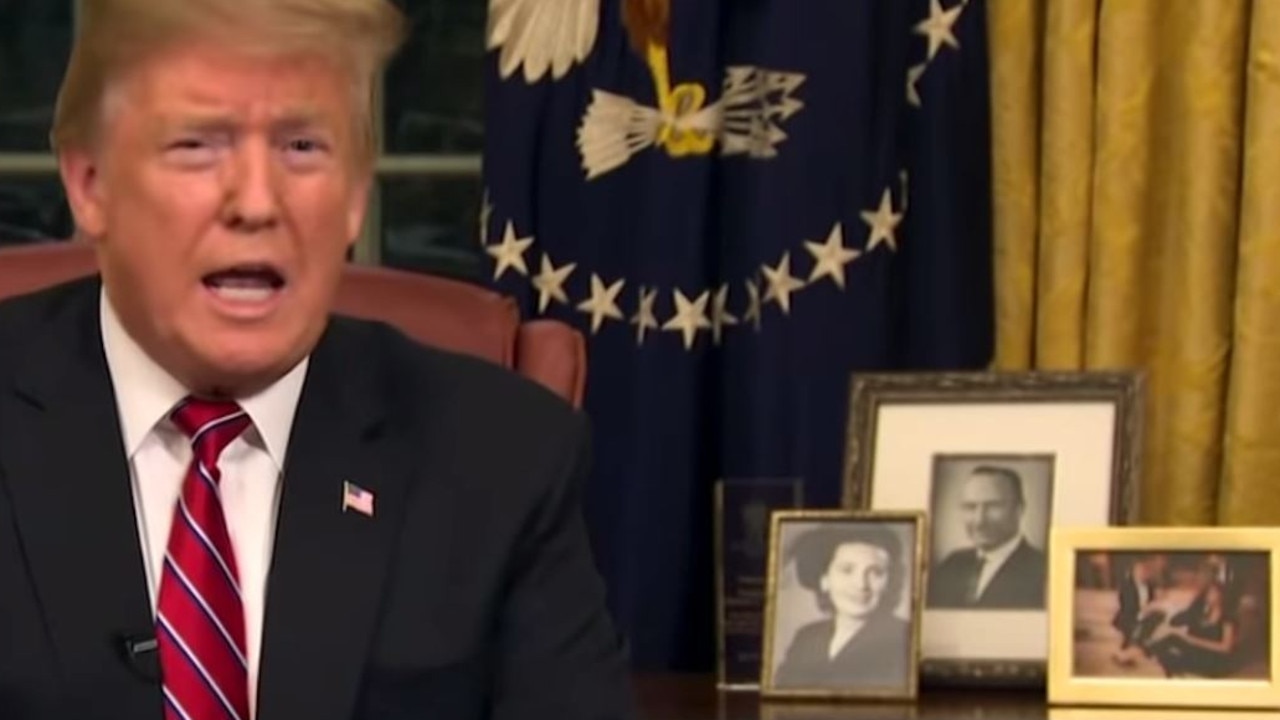How Donald Trump’s father Fred Trump ‘destroyed’ his son’s life
Donald Trump wasn’t always the heir to his father Fred’s empire. But as the future president grew up, he watched his older sibling’s life fall apart.
Mary Trump’s book, which spills on one of the world’s most powerful and apparently dysfunctional families, is absolutely teeming with telling anecdotes. But one in particular has stuck with me.
In 1964, when Donald Trump was 18 years old, he and his younger brother Robert visited their sibling Freddy (the author’s father) at his home in Marblehead, Massachusetts.
As the eldest son of Fred Trump, Freddy had grown up under the expectation that he would inherit his father’s real estate empire.
But Freddy’s personality did not suit the path chosen for him. He was sensitive, soft-spoken, lighthearted and kind.
“Fred wanted his oldest son to be a ‘killer’, in his parlance, and he was temperamentally the opposite of that,” Dr Trump writes.
“Freddy’s problem was his failure to be a different person entirely.”
RELATED: The true villain in Trump relative’s tell-all book
RELATED: Trump’s niece reveals the one act that ‘shocked’ her
Even worse, perhaps, Freddy had no passion for the real estate business. He loved flying, and wanted to be a pilot – an ambition he had achieved by the time Donald and Robert visited him in 1964.
Fred Trump saw the realisation of his son’s dream as a “betrayal”. He subjected Freddy to a “constant barrage of abuse” through letters and phone calls, deriding him as a “bus driver in the sky”.
And according to Dr Trump, Fred sent Donald to drill in the message.

In the book she recounts the alleged exchange:
“Even before they sat down for dinner, Donald started in on his older brother. ‘You know, Dad’s really sick of you wasting your life’, he declared, as though he’d suddenly remembered why he was there.
“I don’t need you to tell me what Dad thinks, said Freddy, who already knew his father’s opinions all too well.
“He says he’s embarrassed by you.
“I don’t get why you care, Freddy replied. You want to work with Dad, go ahead. I’m not interested.
“Freddy, he said. Dad’s right about you. You’re nothing but a glorified bus driver.
“Freddy understood that his brothers had been sent to deliver their father’s message in person – or at least Donald had. But hearing Fred’s belittling words come out of his little brother’s mouth broke his spirit.”
Dr Trump’s book is largely an exploration, and a condemnation, of her grandfather’s sins. As I wrote earlier this week, Fred – not Donald – is portrayed as the true villain of the family.
The author spends several chapters describing how Fred’s treatment of Freddy helped drive him to alcoholism, and then to an early grave at the age of 42.
But she also shows the indirect effects of Fred’s cruelty, which are equally horrendous. That is why the story of Donald’s trip to Marblehead stuck with me.
It shows how Fred turned Donald Trump against his own brother.

“With the benefit of a seven-and-a-half year age difference, (Donald) had plenty of time to learn from watching Fred humiliate his older brother and Freddy’s resulting shame. The lesson he learned, at its simplest, was that it was wrong to be like Freddy,” Dr Trump writes.
“Fred didn’t respect his oldest son, so neither would Donald. Fred thought Freddy was weak, and therefore so did Donald.
“Donald would have taken his father’s treatment of his brother at face value: ‘Dad’s not trying to hurt Freddy. He’s only trying to teach us how to be real men. And Freddy’s failing’.”
Much of the President’s idiosyncratic behaviour as a 74-year-old man is still recognisable as a reflection of his father’s attitudes.
There’s his use of the word “killer” as a compliment; his belief that the world is divided into “winners” and “losers”; and his refusal to apologise for anything, no matter how egregious.
“Fred hated it when his oldest son screwed up or failed to intuit what was required of him, but he hated it even more when, after being taken to task, Freddy apologised. ‘Sorry, Dad,’ Fred would mock him,” Dr Trump says.
“Fred’s fundamental beliefs about how the world worked – in life, there can only be one winner and everybody else is a loser, and kindness is a weakness – were clear. Donald knew, because he had seen it with Freddy, that failure to comply with his father’s rules was punished by severe and often public humiliation, so he continued to adhere to them.”
Even now, more than two decades after Fred’s death, Donald continues to act as though kindness and generosity are signs of weakness. He remains the polar opposite of his older brother.
In other words, Fred’s loathsome treatment of Freddy had the indirect effect of permanently changing Donald’s world view to align with his own.

Donald has frequently cited Freddy’s death as the main reason he doesn’t drink, which is admirable to a point. But he has missed the more important lesson.
Freddy’s life is not just a cautionary tale about the dangers of alcoholism; it’s also a glaring example of the corrosive effects cruelty can have on another human being.
Speaking to The Washington Post last year, the President admitted he had at least some regret about “putting pressure” on Freddy over his career choices.
“I think the mistake that we made was we assumed that everybody would like it (going into the family business). That would be the biggest mistake,” he said.
He conceded there was “a sort of a double pressure put on” Freddy, by both Donald and his father.
Dr Trump’s book makes it pretty clear that Freddy was not “pressured” so much as ridiculed, devalued and degraded, all for the crime of being sensitive and kind – qualities most parents encourage in their children.
Donald still hasn’t grasped the distinction. He still idolises the father who tormented his brother, and still espouses Fred’s toxic view of the world.
“Fred destroyed Donald, too, but not by snuffing him out as he did Freddy; instead, he short-circuited Donald’s ability to develop and experience the entire spectrum of human emotion,” the President’s niece says.
“By limiting Donald’s access to his own feelings and rendering many of them unacceptable, Fred perverted his son’s perception of the world and damaged his ability to live in it.”
Next time Donald Trump gives a speech in the Oval Office, look behind his left shoulder. You’ll see a photo of his father.
All these years later, Fred’s image looms over everything – and so does his influence over his son.





